Long Covid: Mum puts hopes in experimental treatment
- Published
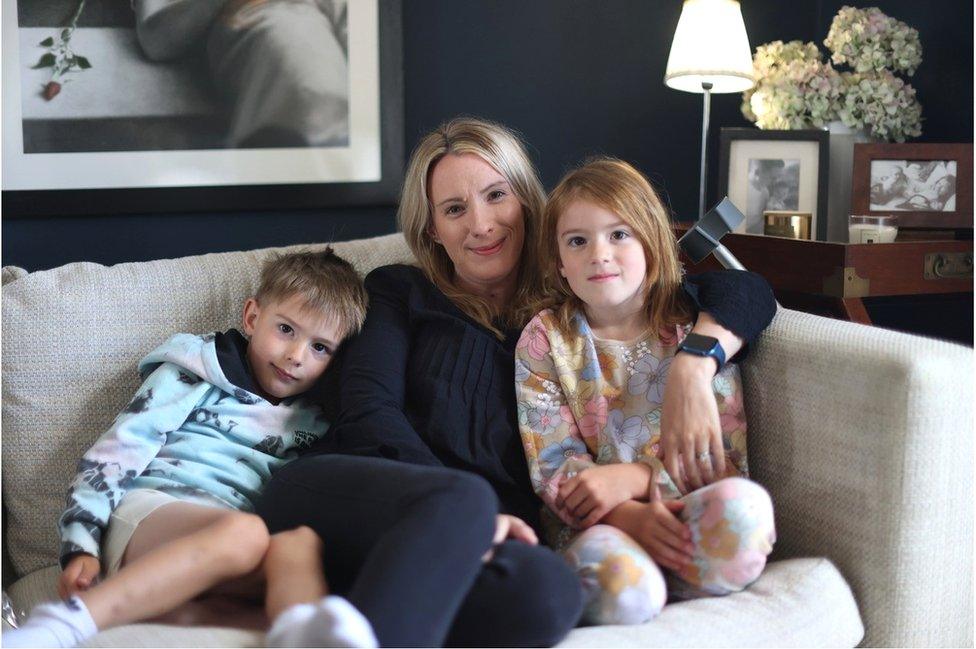
Kate Stott finds it difficult to keep up with her two youngest children Beau and Jude
An Aberdeen mother-of-three whose life has been put on hold by Long Covid will travel to Germany this week for experimental treatment.
Kate Stott says her world has been transformed since she contracted the virus more than two years ago.
She told BBC Scotland her continuing symptoms were debilitating.
But Mrs Stott has now agreed to therapy targeting tiny blood clots which some doctors believe could be a core cause of the condition.
The latest ONS figures estimate 164,000 people are living with Long Covid in Scotland and 57,000 of those have been dealing with the illness for more than 12 months.
The Scottish government has allocated £3m this year to improve care for Long Covid patients.
But for some sufferers, the lack of treatment options has seen them look further afield for help.

Mrs Stott suffers constant fatigue as well as numerous other symptoms
Mrs Stott, 36, woke up in March 2020 with a sore throat. Two-and-a-half years later her life is unrecognisable.
She told BBC Scotland: "First I was so incredibly tired. I was sleeping a lot of the time.
"Then, as the weeks progressed, stranger symptoms would arrive, like shortness of breath, lots of problems with my mobility, rashes everywhere.
"That was the beginning of questioning what was wrong."
The former Scottish businesswoman of the year had Long Covid.
The go-getting entrepreneur had to close her business and was soon spending most of her time on the couch.
She also had to rely on crutches to get around.
'You feel sedated'
Mrs Stott said: "That feeling you get before you get an operation, and you are put under anaesthetic and they say count down from ten - that is what living with Long Covid fatigue is like.
"You just feel like you are sedated.
"I feel like I have got concussion and that sounds bizarre to anybody else who hasn't experienced it.
"But I can do something as little as taking the washing out of the washing machine and I feel like I have hit my head and I am sick and dizzy and have to immediately sit down again."
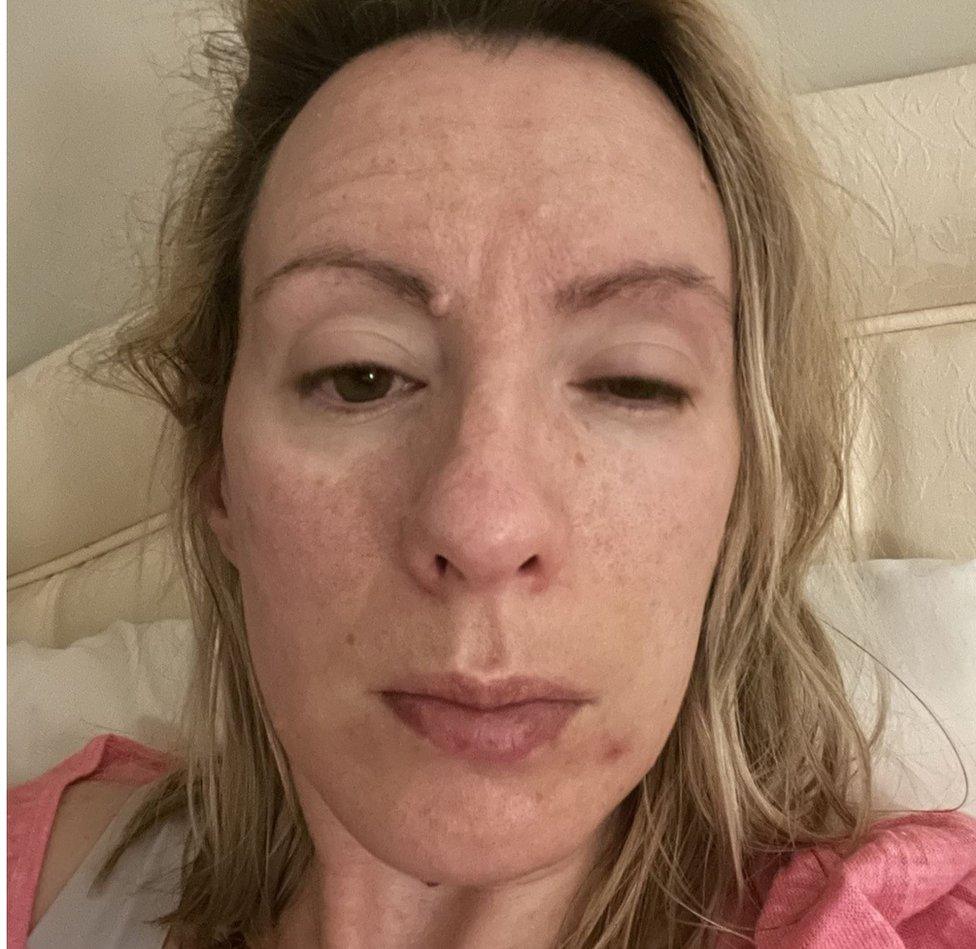
Mrs Stott has been hospitalised several times and suffered from ptosis of her left eye, causing it to droop.
Mrs Stott has been hospitalised numerous times but it took two years to get her diagnosis.
She told BBC Scotland in May that she was willing to go on drug trials to find relief.
On Tuesday she will head to Europe for treatment.
Mrs Stott said: "When I get to Germany I will have my blood taken. It will be tested initially for microclots and hyperactive platelets. I will then have a follow-up consultation with the doctor there.
"What I hope to come home with is prescription drugs that I will be able to take here and speak to my GP and specialist here about and try this trial.
"I just want to try to relieve some of these symptoms. I am not expecting a magic pill."
Microclots are emerging as a potential key to unlocking Long Covid treatment.

What are microclots?
Some symptoms of Long Covid could be down to tiny clots blocking up the smallest blood vessels called capillaries.
Our major arteries and veins are like motorways around our bodies, but capillaries do the actual job of getting oxygen and nutrients to the individual cells of our bodies.
Crucially, capillaries also clear away the waste products of our metabolism. Blocked capillaries could lead to cells becoming rapidly distressed.
Dr David Strain, from the NHS Long Covid Taskforce, said: "That could account for why some people start the day feeling great because the body's had time to replenish itself, but very, very quickly, they become exhausted."
Research has also shown the brain can shrink by between 0.2% and 2% even after mild infection so unrepaired damage is a potential cause of symptoms like brain fog.

Kevin Deans, a consultant chemical pathologist at NHS Grampian, is studying how dissolving the tiny clots will allow oxygen back into the organs, effectively "rebooting the body".
He told BBC Scotland: "They are these very hard to break down little clots - if we can use medicines to dissolve them, the question then is if this allows things to reset.
"Does that allow the formation to settle down, and hopefully allow improved oxygen supply and blood supply to the body's organ systems?
"Understanding the mechanism is key, and then, can we exploit that mechanism to actually have treatments that benefit people, improve their symptoms and become all or part of a treatment regime that can help people with Long Covid?"
Experimental treatments are being offered at private clinics in Cyprus, Germany, and Switzerland where medics use apheresis, a "blood washing" treatment, and anticoagulants - blood thinning drugs.
However, there is, as yet, no published and peer reviewed evidence, external showing that apheresis and anticoagulation therapy reduce microclots.


The ONS publishes updates on the numbers of people who self-report Long Covid symptoms such as fatigue, muscle weakness, breathing difficulties or brain fog. It is likely to be an overestimate as many of these symptoms could also be an indication of something else.
Nevertheless there are thousands of people in Scotland living with debilitating symptoms, desperate for help and who feel like they have nowhere to go.
Long Covid is a very new disorder and there is not a great deal of data about what treatments work. There is also no internationally agreed treatment pathway for the condition.
In 2021, the Scottish government allocated £10m to be spent on Long Covid support with the first £3m going to health boards in May this year. Some believe it is taking too long to set up clear routes to treatment leaving GPs and patients in limbo. They say more could be done to improve diagnosis and to train clinicians as well as investing in research.
But many medics also issue a word of caution about spending thousands of pounds on private treatments without clear evidence that they work.

Treatments for the condition are limited in Scotland.
The Scottish government said it was up to individual health boards to develop and deliver the best models of care which, in time, could include specific Long Covid clinics.
A spokesman said: "Initiatives being supported by the Scottish government's Long Covid Support Fund include key elements of care that are also offered by Long Covid assessment clinics elsewhere in the UK."
Dr Amy Small is living with Long Covid and is Chest Heart & Stroke Scotland's clinical advisor.
She said: "Some progress has been made in Scotland but it's not enough.
"Long Covid is having a huge impact on people's daily lives and it's affecting people in a number of different ways. Not all treatments out there will be right for everyone so it's important to seek advice."
Ms Stott said she could not wait any longer and she had lost enough of her life already.
Her mother Adele said it had been agony to watch: "It's catastrophic. It just affects every member of the family.
"It is distressing because you don't know what the future holds.
"It's not like she has been diagnosed with a condition that you know what the outcome is going to be."
Her daughter vowed she was willing to try anything.
Mrs Stott added: "For me, the hope would be to get back to normal again, and get on with life."
Related topics
- Published18 August 2022
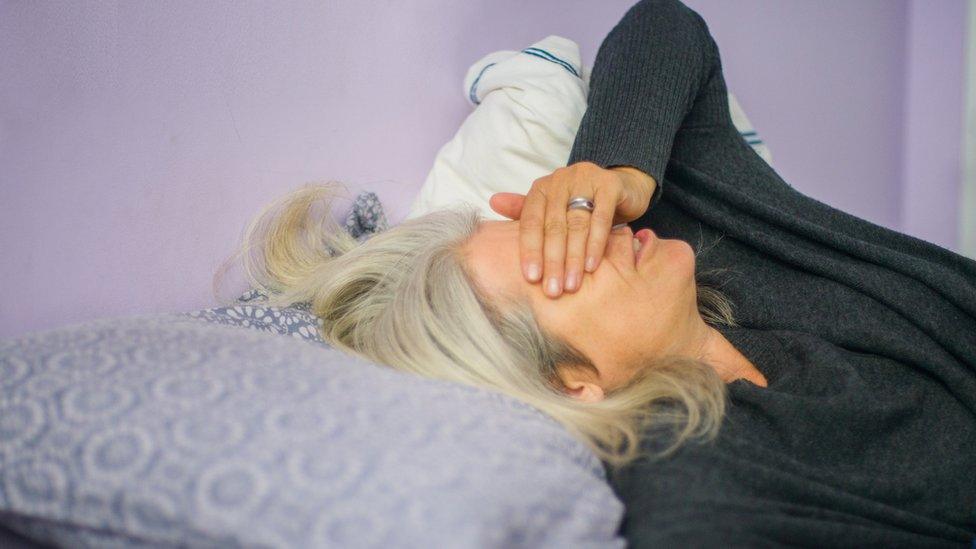
- Published6 May 2022
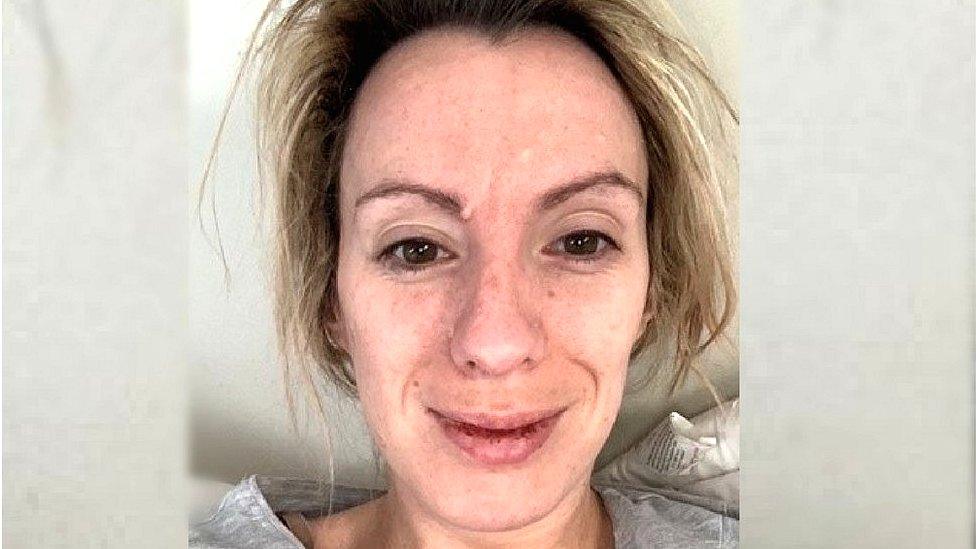
- Published2 April 2022
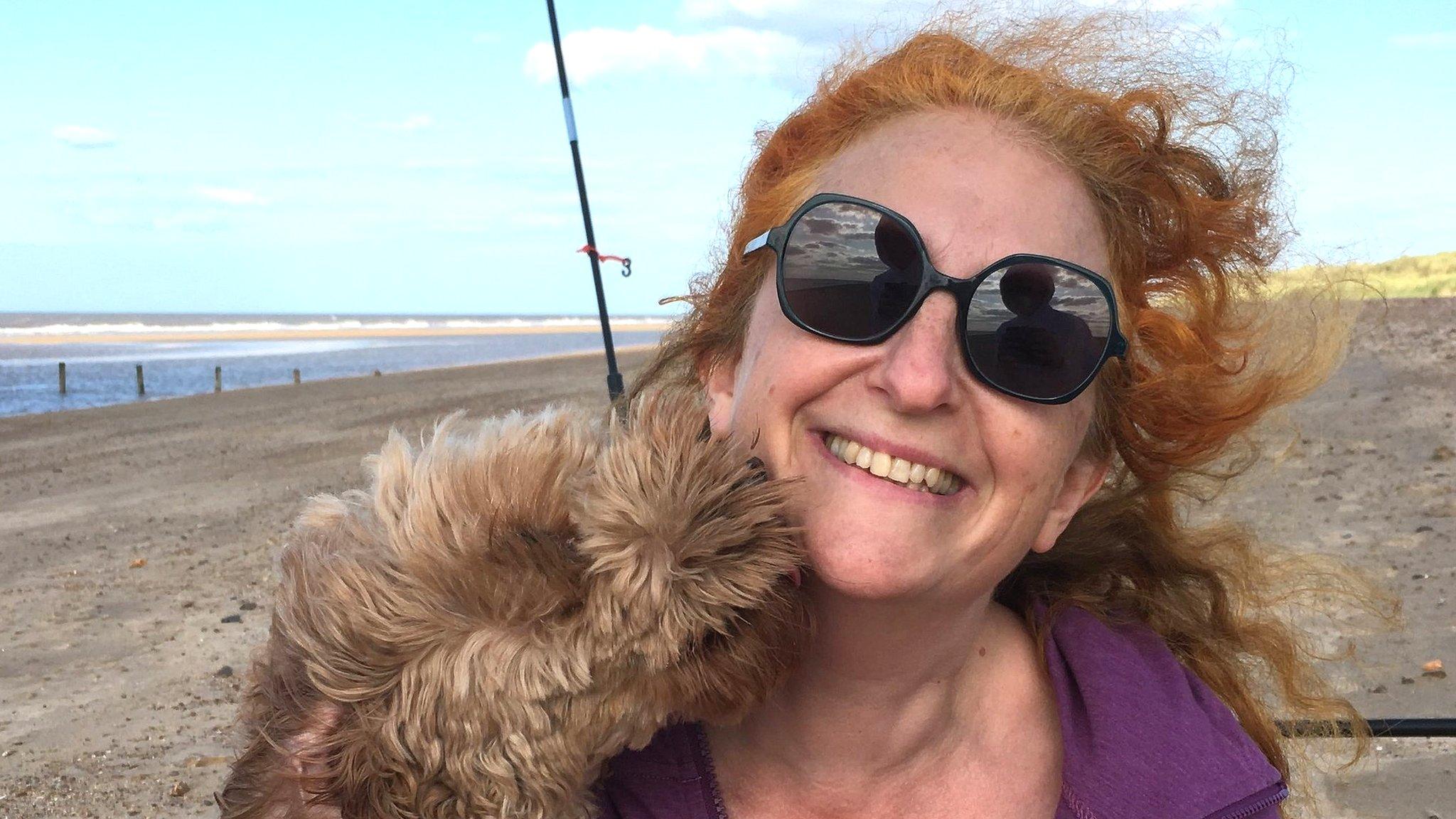
- Published26 December 2021
